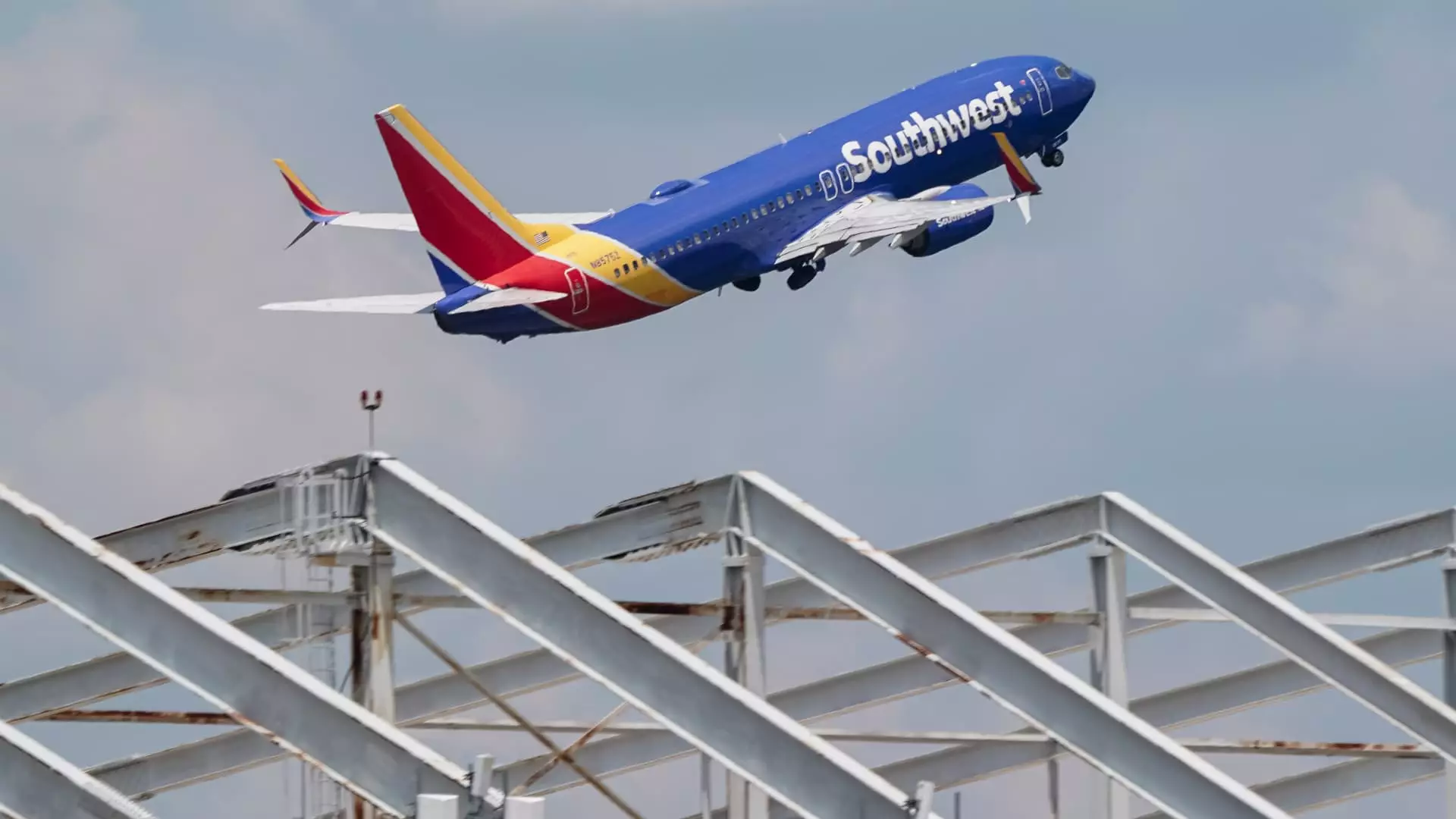In the wake of fluctuating market conditions, Southwest Airlines has released its third-quarter financial results, revealing a decline in profit relative to the previous year. Nonetheless, the performance exceeded Wall Street’s projections, sparking renewed interest among investors. The airline reported a revenue increase of over 5% year-over-year, totaling $6.87 billion, albeit accompanied by a stark 65% decrease in net income, which amounted to just $67 million. Even with these setbacks, adjusted earnings per share of 15 cents beat expectations, illustrating the carrier’s ability to generate revenue despite challenging circumstances.
A significant development during this quarter was Southwest’s engagement with activist investor Elliott Investment Management. In a proactive move aimed at avoiding a contentious proxy fight, the airline reached a strategic agreement with Elliott, leading to the induction of six of the investor’s nominees to its board. This deal effectively stabilized the leadership structure, allowing CEO Bob Jordan to retain his position. Such governance changes signify the pressure South West feels to adapt and innovate under the scrutiny of influential stakeholders.
Looking ahead, Southwest forecasts a modest increase in unit revenue for the fourth quarter, predicting a rise of 3.5% to 5.5% against a backdrop of a significant 4% reduction in overall capacity. This cautious optimism is tempered by expectations of rising non-fuel related costs, projected to jump by as much as 13%. The airline emphasizes that travel demand remains robust, with holiday season bookings signaling sustained consumer confidence in leisure travel. This trend mirrors broader industry patterns, where competition has forced carriers to scale back on flights that do not serve their financial interests, effectively stabilizing prices.
In a bold move to enhance its financial footing, Southwest has launched a comprehensive three-year strategy aimed at boosting earnings before interest and taxes by $4 billion by 2027. As part of this initiative, the airline authorized a stock repurchase program worth $2.5 billion and outlined plans to streamline routes from Atlanta, targeting operational efficiency. These steps underscore a commitment to shareholder value while simultaneously addressing the challenges posed by changing market dynamics.
In a noteworthy departure from its longstanding open seating policy, Southwest Airlines is embarking on a transformation of its seating arrangements. The airline plans to introduce new pricing tiers for seating, including options for extra legroom, marking the most significant change in customer experience in over half a century. This strategic pivot aims to generate additional revenue streams while still catering to the preferences of modern travelers who increasingly value comfort and choice.
As Southwest Airlines navigates through financial turbulence and competitive pressures, its latest strategies and adjustments indicate a proactive approach to maintaining relevance and profitability in the aviation industry. The dual focus on immediate performance and long-term growth prospects paints a picture of a resilient airline prepared to evolve in response to both internal challenges and external market forces. Southwest’s commitment to adapting its operations and enhancing shareholder returns will be crucial as it continues to chart a course for recovery and growth in a rapidly changing environment.

